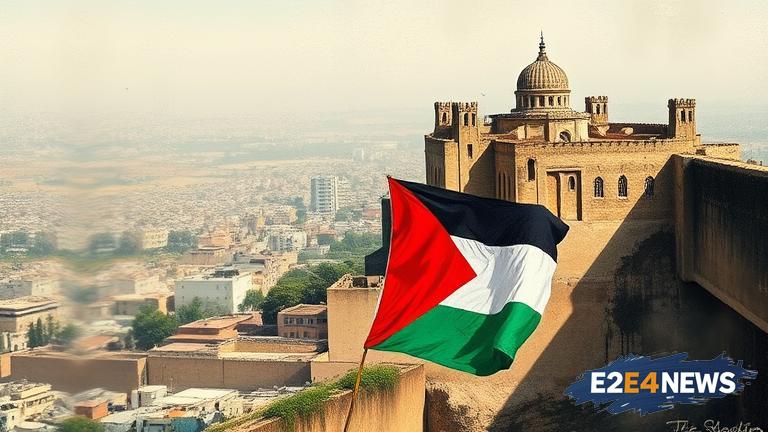The Palestinian issue is a longstanding and complex conflict that has garnered international attention for decades. At its core, the dispute revolves around the Israeli-Palestinian conflict, with both parties claiming rights to the same land. Historically, the region has been inhabited by various cultures, including the ancient Israelites, Romans, and Ottomans, each leaving their mark on the territory. The modern conflict, however, began to take shape in the early 20th century with the rise of Zionism, a movement advocating for a Jewish homeland in Palestine. This led to an influx of Jewish immigrants, resulting in tensions with the existing Arab population. The 1948 Arab-Israeli War marked a pivotal moment, as Israel declared independence, leading to the displacement of hundreds of thousands of Palestinians, known as the Nakba or ‘catastrophe’ in Arabic. Since then, the conflict has escalated, with periods of relative calm punctuated by outbreaks of violence, including wars in 1967 and 1973. The Israeli occupation of the West Bank and Gaza Strip, captured in 1967, has been a major point of contention, with Israel constructing settlements and imposing strict controls on the Palestinian population. The Palestinian leadership has sought recognition as a sovereign state, a move opposed by Israel, which claims security concerns and historical rights to the land. International law plays a significant role in the conflict, with numerous United Nations resolutions calling for Israel’s withdrawal from occupied territories and the right of return for Palestinian refugees. Despite these efforts, a lasting peace agreement has yet to be achieved, with both sides entrenched in their positions. The humanitarian situation in Gaza is particularly dire, with the enclave facing severe shortages of food, water, and medical supplies due to the Israeli blockade. The role of the international community is crucial, with countries like the United States, European nations, and Arab states influencing the trajectory of the conflict through diplomatic and economic means. The case for Palestine is built on the principles of self-determination, human rights, and international law, advocating for the establishment of an independent Palestinian state alongside Israel. Proponents argue that this is essential for achieving peace and stability in the region. Critics, however, point to security concerns and the need for a negotiated settlement that addresses the complexities of the conflict. The issue is further complicated by internal Palestinian divisions, between Fatah and Hamas, which have hindered a unified approach to negotiations. As the conflict continues, the international community is urged to play a more active role in promoting a just and lasting peace. This includes supporting Palestinian statehood, ending the occupation, and ensuring the rights of refugees. The use of boycotts, divestments, and sanctions (BDS) against Israel has been a contentious strategy, aimed at pressuring Israel to comply with international law. In conclusion, the case for Palestine is multifaceted, involving historical, legal, and humanitarian dimensions. It requires a comprehensive approach that addresses the root causes of the conflict and seeks to establish a framework for peaceful coexistence between Israelis and Palestinians. The path forward will undoubtedly be challenging, necessitating compromise and a commitment to the principles of justice and human rights. Ultimately, the resolution of the Palestinian issue is crucial not only for the parties directly involved but also for regional and global stability. The international community must recognize the urgency of the situation and work towards a solution that respects the rights and dignity of all people involved. By understanding the depth and complexity of the issue, we can begin to build a foundation for peace, one that is based on mutual respect, understanding, and a commitment to human rights and international law.
